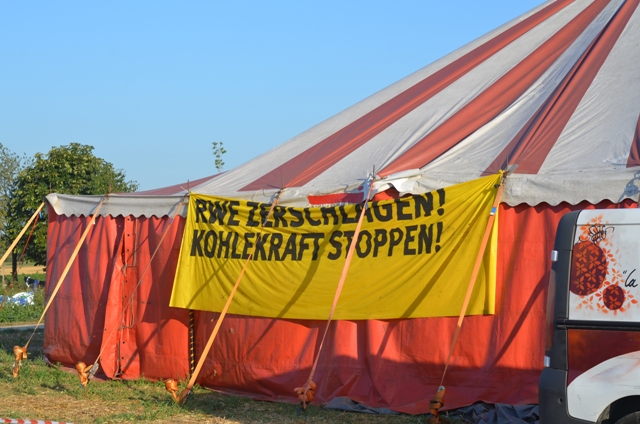Interview with Katja Kipping
Katja Kipping is chairwoman of the German Left Party and Member of the German Parliament. Besides her engagement for good working conditions in her capacity as spokesperson for social affairs, she supports the exchange between party politics and civil society through engaging in social movements such as the network for unconditional basic income. For this interview, she imagines herself living in a post-growth society in 2030, looking back to “past” difficulties and transformative moments on the way. From this perspective, she mainly sees the democratization of public domains as an important step toward a post-growth society.
Please imagine that the world is enjoying a phase of "good living" beyond growth. Let us then take stock of the past decades from the perspective of, say, the year 2030. To what extent was society reliant on growth?
A mode of production geared towards competition and profit has to grow, because only growth allows us to survive in a competitive environment, and because long-term profit is only possible through an intensive or extensive growth of production - and because the pressure to exploit resources for profit has to result in an increased pressure to consume. Boosting production means increasing the use of resources – be they natural or human. Capitalism thus meant an uneconomic waste of valuable common goods – nature, human skills, cultural and intellectual achievements.
What were the obstacles preventing a paradigm shift in growth?
The main obstacle was the pressure to make profit and to compete, which was ideology-driven and institutionally underpinned and only served the interests of a few – i.e. those who ruthlessly achieved gains in profit and power. And it was a cultural orientation which sought salvation in the accumulation of more and more goods, although an oversupply of the items and abilities required for good living had already existed for decades – a dangerous illusion, as we know today.
What was your contribution to a society beyond growth?
Radical democratization of all public domains including the economy and also with respect to the commons. This was a political task I was happy to take on. In addition, I also campaigned for the introduction of an unconditional material safety-net for all by means of a basic income – along with free access to culture, knowledge and education, public transport and high-quality health care. People who are not worried about making ends meet or anxious about being marginalised in society need not be greedy and need not cling to the promises of salvation made by growth ideologists.
In your view, what constitutes "good living" within a society with a deliberately low level of production and consumption?
Time for leisure, friendships and loved ones, time sovereignty, culture, dance, no worries about making ends meet or being marginalised, political and intellectual challenge, living and working in harmony with nature, producing what we need. Attractive products people can enjoy. As you see, it means a great deal of luxury. Good living is the luxurious life which we live today. How wretched we were 16 years ago, afflicted by the misery of growth.
What signs of a world beyond growth could already be seen in 2013?
There were awareness-raising campaigns by wise people critical of growth, grass-roots movements for a solidary and ecological economy, social movements campaigning for a basic income, for free public transport, for access to education, culture, knowledge and healthcare for all, for time sovereignty. Poorer countries who would have had preferred to refrain from the extraction of oil, environmental destruction, climate risks and the destruction of the social fabric in return for a compensation from the rich countries of the global North – which they unfortunately never received. All of them paved the way for the good life we have today.
We all use models in daily life to explain our environment. An example: I assume that a tree will grow provided it has sufficient water, nutrients and sun. I am using a simple model here, without understanding the nitty-gritty – what exactly happens in the roots, stem, leaves and cells. Thinking in models is not only useful to understand our world, but also to solve problems. Let’s assum...

According to German columnist Georg Diez, the violation of democratic processes in the wake of the financial crisis in 2007/2008 was an epochal break comparable to the great depression and the developments thereafter. One reason for the increase in racism and rise of the radical right, he writes, is also the helplessness of the left faced with the increasing numbers of people who feel abandon...

For our Degrowth in Action - Climate Justice Summer School 2015 we are currently looking for contributors to our courses. The summer school will take place from 9 to 14 August 2015 in the lignite-mining region of the Rhineland in cooperation with the annual climate camp. The courses will be at the centre of the Summer School and run for 4 or 2 days, thus giving the opportunity to dive deeper in...